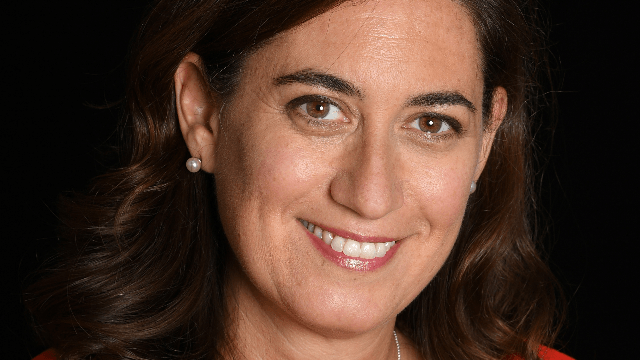Georgina Grenon: “We Can No Longer Organise the Olympics in the Same Way We Used To”
Georgina Grenon, Director Environmental Excellence for Paris 2024 and holder of ESSEC Executive Education’s Women Be Board Ready Advanced Certificate, is here to tell us about her plans for the first ever Olympics that will be a net contributor to the environment.
ESSEC Alumni: What is your remit?
Georgina Grenon: We can no longer organise the Olympics in the same way we used to. We need to be able to deliver sport, celebration, and excitement, all while managing our environmental impact. This is where our environmental excellence department steps in: we support the various departments that make up Paris 2024, as well as all of the event’s corporate, private, and sporting partners, so that together we can meet our sustainability and responsibility targets.
EA: What are the main projects you have launched so far?
G. Grenon: We began by defining clear and ambitious procedures for achieving our targets. If we want to reduce our environmental impact and our effect on the climate, we first need to understand and plan ahead to identify precisely what we can leverage to bring them into line. It seems straightforward but it demands profound changes to how we work and how an event is planned. We then defined innovative strategies around issues like biodiversity, carbon, and the circular economy, before launching more operational projects for each of them. Our first actions included drafting and implementing a sustainable purchasing strategy.
EA: What does that strategy cover?
G. Grenon: We encourage the companies we sign contracts with to make a commitment to five themes: the circular economy, carbon, the environment, disabilities, and regional value creation. In doing so, we send a strong message: each of us has to take responsibility for our part, all the more so when we are organising the world’s biggest sporting event. Of course, the strategy is adapted on a case-by-case basis; depending on the market’s maturity with regard to sustainability, we work with service providers and partners to find solutions.
EA: You also rolled out a particularly ambitious carbon management plan...
G. Grenon: We made a commitment to deliver the first Olympics aligned with the Paris Agreement. What this means in practice is halving greenhouse gas emissions compared to the last summer Games. We made some bold decisions to achieve this even in the application phase, such as submitting our bid using 95% existing or temporary infrastructure. Next, in the preparatory phase we identified a “target carbon footprint” that saw carbon emissions taken into account in the planning stage, rather than simply reporting the carbon footprint after the event. Before we sign a contract or make a decision, we examine its impact on the environment, which is a real shift in mentality.
EA: What further actions do you plan to take in a similar vein?
G. Grenon: All of the venues for the Olympics will be powered using 100% renewable energy generated in France by our domestic partner, EDF. We also plan to provide clean transport for the Olympic and Paralympic family, build low carbon buildings, take the materials’ second life into account from the contract phase, and to provide low carbon, sustainable catering. And for all emissions that cannot be avoided or reduced, we will offset them by more than 100% across a wide range of activities, including spectator transport. The carbon offsetting projects we support will also comply with the highest international standards and provide secondary social and environmental benefits. And we will take this even further by supporting initiatives in France and working with all of our stakeholders to help them grow.
EA: How does Pulse, the Paris 2024 head office in Seine Saint Denis, express your social and environmental ambitions?
G. Grenon: Of the 15 contracts for head office, 55% were from the third sector, with 35% being fulfilled by small businesses. The structure of the building itself is made of a mix of wood and concrete and is a certified low carbon construction. It is powered by 100% French renewable energy, some of which is produced by the rooftop solar panels, with the rest being provided by our partner EDF. We have also given some thought to how our staff experiences the space: the restaurant serves low carbon and plant-based dishes, with a daily vegetarian option, and made using at least 20% local ingredients sourced within 200 km. We also avoid food waste by donating unsold dishes and collecting organic waste for biogas recycling. In the actual office spaces, there are water fountains and ceramic tableware to do away with single-use plastics. The list goes on and on: collection of rainwater, upcycled carpets, kitchen garden on the rooftop, secure bike racks to encourage slow mobility...
EA: Will the new Olympic infrastructure meet the same high standards?
G. Grenon: Remember that Paris 2024 made a conscious decision to minimise new construction, too: only two venues will be built for the Games, venues that also meet the needs of the local community in Seine-Saint-Denis. The Olympic and Paralympic Village will become a sustainable neighbourhood accessible to everyone in the department, while the water sports centre will provide the local community with a new sports facility.
EA: You also want to incorporate the principles of the circular economy into Paris 2024. How?
G. Grenon: […]
Translation of an extract from article published in issue 139 of Reflets Mag. To read that issue (in French), click here. To be sent the next issues (in French), click here.

Comments0
Please log in to see or add a comment
Suggested Articles



